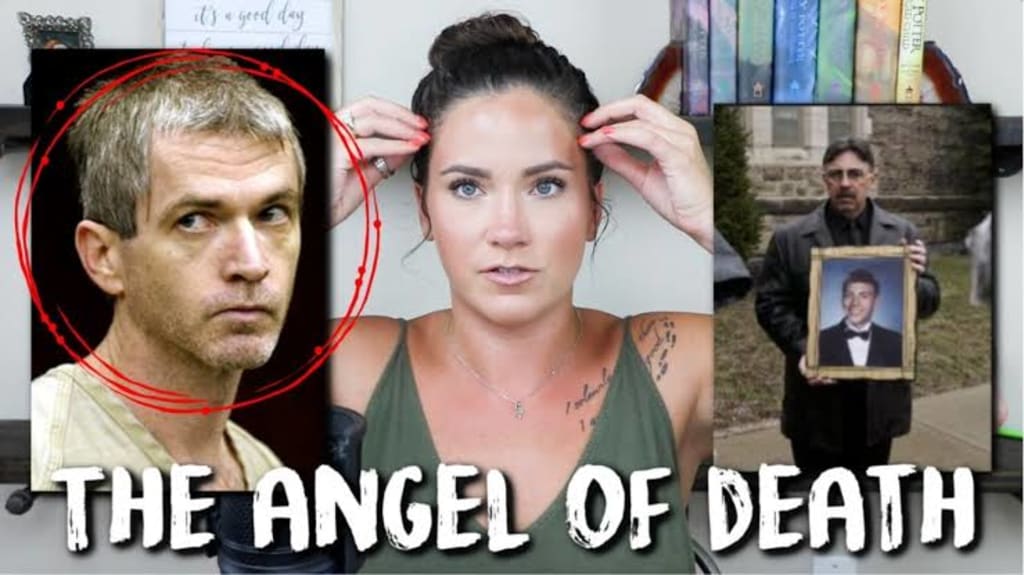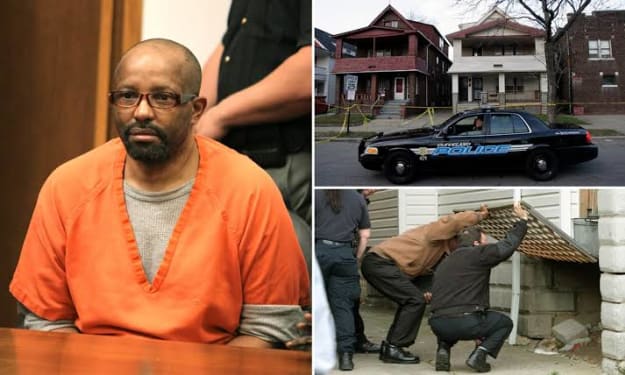Cullen: Nurse Turned Serial Killer
Charles Edmund Cullen, the "Angel of Death," was a nurse responsible for a chilling spree of murders in New Jersey and Pennsylvania hospitals from the late 1980s to 2003

Charles Edmund Cullen, also known as the Angel of Death is a former nurse who gained notoriety for his prolific and chilling spree of murders in hospitals across New Jersey and Pennsylvania. Born on February 22, 1960 in West Orange, New Jersey, Cullen's life took a dark turn as he embarked on a career in the medical field, ultimately becoming one of the most prolific serial killers in American history. Cullen's murderous spree began in the late 1980s and continued until his arrest in 2003. Working as a nurse in various hospitals, he utilized his access to patients to carry out his heinous acts. His methods of killing were varied, including administering lethal drug overdoses and altering patients' medications, causing their deaths to appear as natural or accidental. Cullen's actions went undetected for a considerable period, due in part to the chaotic and high-pressure nature of hospital environments.The true extent of Cullen's crimes only began to emerge after he was fired from his nursing job at Somerset Medical Center in 2002, following numerous incidents of misconduct and his failure to adhere to medical protocols. In an attempt to cope with the emotional turmoil and stress of his personal life and career struggles, Cullen confessed his crimes to a psychiatrist. This psychiatrist, alarmed by Cullen's admissions, contacted authorities, leading to his arrest in December 2003.
During his subsequent interviews with law enforcement Cullen admitted to killing at least 40 patients, though some estimates suggest the actual number of victims could be much higher—possibly exceeding 400. The enormity of his death toll, combined with the seemingly calculated and methodical nature of his killings, earned him the grim moniker "Angel of Death."Cullen's motives for his crimes remain complex and somewhat enigmatic. While he claimed to have euthanized patients out of a twisted sense of mercy many believe that he also derived a disturbing sense of power and control from the act of taking lives. His ability to evade detection for so long speaks to the challenges faced by hospital administrations in identifying medical professionals who exploit their positions of trust for nefarious purposes. In 2006 Cullen pleaded guilty to 22 murders in New Jersey and was subsequently sentenced to 18 consecutive life sentences without the possibility of parole. His cooperation with authorities, including providing detailed information about his methods and victims, led to a deal that spared him from the death penalty. Despite this, his actions continued to haunt the families of his victims, who grappled with the knowledge that their loved ones had died needlessly and under horrifying circumstances.
The case of Charles Cullen prompted significant scrutiny of the healthcare system, particularly the issue of patient safety and the oversight of medical professionals. It also highlighted the challenges associated with investigating and prosecuting medical serial killers, as their actions can easily be attributed to medical complications or natural causes. In the years following his conviction, Cullen's story has been the subject of numerous books, documentaries, and television specials. His case serves as a chilling reminder of the potential for individuals in trusted positions to commit heinous acts that go unnoticed for extended periods. The legacy of his crimes has left a lasting impact on the healthcare industry, spurring efforts to improve patient safety protocols increase the vigilance of hospital staff, and implement stricter regulations to prevent similar tragedies from occurring in the future. In conclusion, Charles Edmund Cullen's reign as the Angel of Death stands as a stark and haunting chapter in criminal history. His ability to exploit his role as a healthcare professional to carry out a spree of murders underscores the depths of human depravity. The case serves as a grim reminder of the need for constant vigilance in all aspects of patient care and safety within the medical field, as well as the ongoing effort to uncover and bring justice to those who commit such egregious acts.





Comments
There are no comments for this story
Be the first to respond and start the conversation.